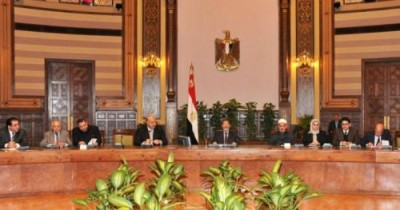Egypt expressed its concern about violent actions in the compound of Al-Aqsa Mosque, Ministry of Foreign Affairs spokesperson Ahmed Abu Zeid said in a statement on Friday.
The spokesperson warned of the impact of this incident on the peace process, as well as reviving efforts and negotiations between Palestinians and Israelis.
On Friday at noon, the Israeli forces ordered the closure of the areas surrounding Al-Aqasa Mosque after three Palestinian gunmen opened fire and shot dead two Israeli policemen.
The gunmen were shortly killed afterwards.
President of the Palestinian Authority Mahmoud Abbas spoke to Israeli Prime Minister Benjamin Netanyahu by phone on Friday and condemned the shooting, according to Palestinian news agency Wafa. “The president expressed his strong rejection and condemnation of the incident that took place at Al-Aqsa Mosque, as well as his rejection of any violent incidents from any side, especially in places of worship,” Wafa reported.
According to the agency, Abbas called upon Netanyahu to end the closure of the holy site, while Netanyahu asked Abbas that all sides should remain calm, as reported by Wafa.
Al-Azhar strongly condemned the incident of banning worshippers from performing Friday prayer and the closure of the compound of Al-Aqsa.
In a statement, Al-Azhar also condemned arresting Mufti of Jerusalem Mohammed Hussein and the former Mufti of Jerusalem and Imam of Al-Aqsa Ekrema Sabri.
Al-Azhar warned that the “Zionist Entity” may use the incident to implement its plan to “Judaise” Jerusalem and Al-Aqsa Mosque. The biggest Muslim-Sunni institute called upon the international community to be responsible towards the Palestinian people, as well as to stop abusing “international standards” when it comes to dealing with the occupation. Al-Azhar also demanded the reopening of Al-Aqsa Mosque.
Imam of Al-Aqsa Ekrema Sabri told Anadolu Agency that the Israeli forces are currently banning prayer at the mosque. Sabri added that these measures are unprecedented since “the Israeli occupation of Jerusalem in 1967, expressing his rejection to all the Israeli measures which he described as “collective punishment.”

